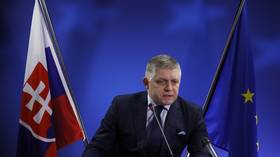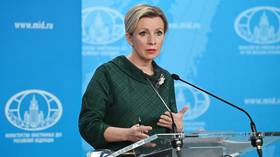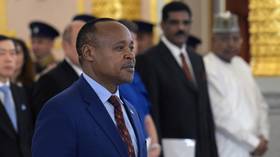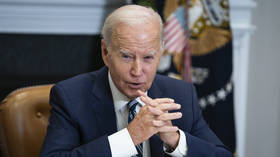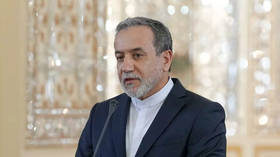Oil producers to oust dollar?
A report in the UK’s Independent newspaper says Brazil, China, Russia, Japan and the Gulf states plan to stop using the dollar in oil trading. The newspaper claims the countries have been in secret talks on the matter.
This prompted some analysts to speculate that an economic war is possible between the US and China over Middle East oil.
The nations would, instead, opt to use other currencies, including a regional one to be circulated in the Gulf States.
Economists say business would only benefit from such a diversity of currencies:
“It's only better for the central banks and only better for entrepreneurs I think, in the end, if there's a wider array of currencies from which they can choose from,” said Yaroslav Lissovolik, chief economist at Deutsche Bank in Russia.
But Saudi Arabia has swiftly denied any secret talks – and, in fact, the dollar strengthened slightly as denials spread.
And analysts say that given the situation in the Middle East, Saudi Arabia would not dare to take such a step.
“There is probably going to be a lot of pressure behind the scenes by investors on Saudi Arabia and the other Gulf States. And let us not forget that the United States does not only afford protection to these countries – it is a key player in the Israeli-Palestinian situation,” said energy economist and analyst Muhammad-Ali Zainy.
“I do not think that Saudi Arabia is going to take this gamble at this political stage when the Palestinians and the Israelis have to really negotiate. The only player who can intervene and mediate and find solutions is the United States.”
What has not been secret has been the desire of the G20 to move away from the dollar's dominance. Back in April, G20 members called for establishing an alternative currency. This idea is based upon what the IMF uses to rival the dollar.
The financial crisis in the United States has proven how dependent the world is upon one currency as economic instability spread. The downturn soured emerging markets on the dollar and caused more speculation about the possibility of diversifying reserves.
That's a tricky proposition, though, for Japan, China, and Russia, who hold hundreds of billions of US dollars in reserves and who would lose its value if the dollar is sidelined.
Washington is sure to use all of its resources to try to block the dollars' expulsion from the world stage. But how long the US can fend off calls for a new global currency depends on how strong and how fast the dollar can rebound and on how loud and frequent the calls are for a new leading currency.
Russia’s northern capital, Saint Petersburg, favors trading oil and gas in rubles. At a summit in the US recently, Russian President Dmitry Medvedev also supported the idea of the ruble as a regional currency.
Late last month, Iran announced that its foreign currency reserves would be held in euros from now on, instead of dollars. So while nations publicly deny a plan to oust the dollar…it may not be enough to quell speculation.


